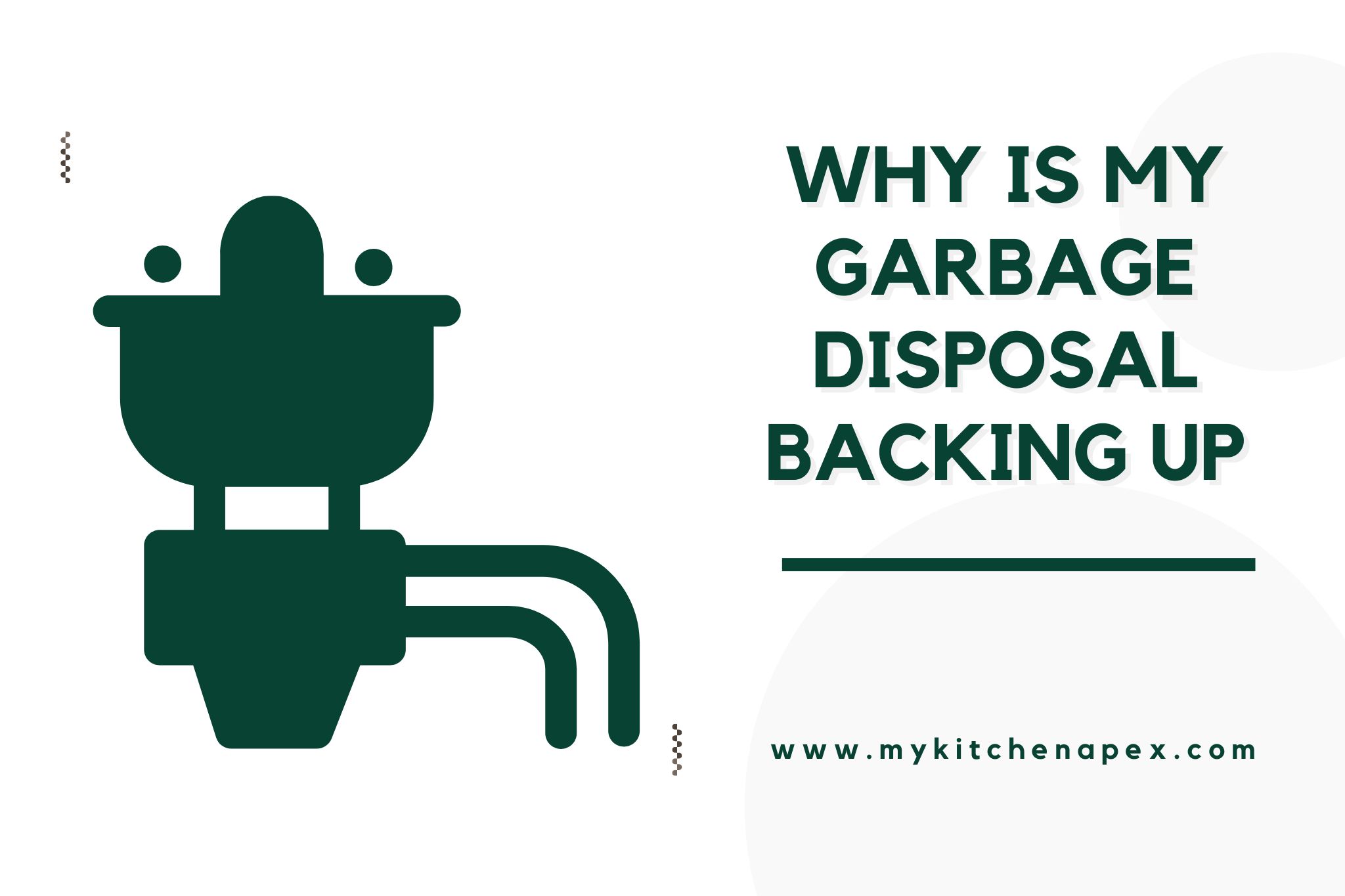Originally Created on: February 24, 2024 @ 8:38 am
Are you experiencing the frustration of a backed-up garbage disposal in your kitchen? It can be incredibly inconvenient and messy, but understanding the reasons behind this issue can help you prevent it from happening in the future.
Garbage disposals can become backed up for a variety of reasons, such as food particles accumulating and creating blockages, or mechanical issues causing the unit to malfunction. Understanding the causes can help you troubleshoot the problem and take the necessary steps to fix it.
Table of Content
Highlights:
- Food particles and grease can clog the disposal
- Mechanical issues or damage can cause backups
- Proper maintenance and cautious use can prevent backups
why is my garbage disposal backing up
Garbage disposals can back up for several reasons. One common cause is the buildup of food particles and grease, which can clog the disposal and prevent it from working properly. Over time, these substances can create a blockage in the disposal unit, causing it to back up and potentially overflow.
Another reason for a garbage disposal backing up could be a malfunction or damage to the disposal unit itself. If the blades are dull or if there is a mechanical issue, the disposal may not be able to effectively process food waste, leading to backups. It’s important to regularly maintain and inspect your garbage disposal to prevent these issues from occurring.
To prevent your garbage disposal from backing up, it’s crucial to avoid putting certain types of food waste down the drain, such as large chunks of food, fibrous materials, and grease. Additionally, running cold water while using the disposal can help flush out any small particles and prevent blockages. Regularly cleaning and maintaining your disposal can also help keep it running smoothly and prevent backups.
You May Also Like: why is my garbage disposal not spinning
How do I know if my garbage disposal is backing up?
You can tell if your garbage disposal is backing up if you notice water pooling around the sink drain and the disposal is making strange, gurgling noises.
Additionally, you may experience a foul odor emanating from the sink, indicating that waste is not being properly disposed of. It’s important to address a backing up disposal promptly to prevent further damage and ensure proper functioning.
To determine the cause of the backup, first, turn off the disposal and check for any visible blockages or clogs. If you don’t see anything obstructing the disposal, it’s possible that the backup is due to a more serious issue, such as a damaged or malfunctioning unit.
In such cases, it’s best to seek professional help to diagnose and fix the problem to avoid any potential hazards.
Preventing garbage disposal from backing up
Preventing garbage disposal backups involves regular maintenance and proper usage. To maintain the disposal, avoid throwing large or hard items down the drain, and periodically clean the disposal to remove any built-up food particles. Additionally, running cold water while using the disposal can help keep it clear and prevent clogs from forming.
Proper usage of the garbage disposal is also crucial in preventing backups. Avoid putting fibrous or starchy foods, like banana peels or potato skins, down the disposal, as they can cause clogs.
Furthermore, be mindful of the amount of food waste going into the disposal at once, to prevent overwhelming the system and causing a backup. Regular maintenance and mindful usage can help prevent garbage disposal backups and keep the kitchen sink drains clear and functional.
Also Read: why garbage disposal stinks
How do you fix a backed up garbage disposal?
To fix a backed up garbage disposal, start by turning off the power to the unit to ensure your safety. Next, use a flashlight to look into the disposal to identify any visible blockages, such as food or foreign objects.
Once the blockage is identified, use a pair of tongs or pliers to carefully remove the obstruction. You can also use a plunger to try to dislodge the blockage by creating suction, or use a hex key to manually rotate the disposal’s motor to free the jam.
After clearing the blockage, restore power to the unit and test to ensure it’s working properly. Remember to never place your hand inside the disposal to avoid injury.
Can a clogged garbage disposal cause a backup in the sink?
Yes, a clogged garbage disposal can cause a backup in the sink. When the disposal becomes clogged, it prevents food scraps from properly draining, causing water and debris to accumulate in the sink.
As a result, the sink can become backed up and cause potential leaks or even damage to the disposal unit itself.
To prevent a clogged garbage disposal from causing a backup in the sink, it’s important to regularly clean and maintain the disposal unit.
Additionally, avoiding dumping large amounts of food scraps down the disposal at once can help prevent clogs from occurring. If a backup does occur, it’s essential to address the clog promptly to prevent further damage to the sink and disposal unit.
Also Read: why is my garbage disposal not draining
Final Thoughts
Garbage disposals can back up due to food and grease buildup or mechanical issues. To prevent this, avoid putting large food chunks and fibrous materials down the disposal, and regularly clean and maintain it. Signs of a backup include water pooling and gurgling noises.
To fix a backup, turn off the power and remove any obstructions using tongs or a plunger. A clogged disposal can cause a sink backup, so it’s important to address clogs promptly and maintain the disposal to prevent this.

